Tag : antisemitism
February 11, 2021 by April Baskin
When Jewish Space Laser Jokes Help the Enemy
Last week, as I was scrolling through Facebook, I noticed all the chatter and jokes about a “Jewish space laser.” It was clear to me that people were responding to a headline. Initially I assumed based on context clues that it was some sort of joke coming from a Jewish leader, or perhaps out-of-context banter about an Israeli space program.
No one’s post directly identified a source, so I went searching to find out for myself. I was a bit surprised and disappointed to learn that it wasn’t “one of our own.” Rather, this absurd antisemitic conspiracy theory was from a November 2018 Facebook post written by Marjorie Taylor Greene, a recently-elected congresswoman and QAnon enthusiast, in which she speculated Rothschild-owned space lasers were the cause of the California wildfires.
(more…)- No Comments
January 28, 2021 by admin
A Southern Jewish Farmer?!
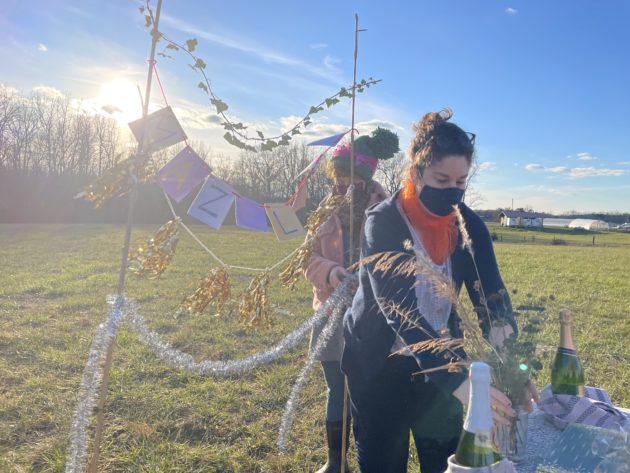
Questions that I’ve heard many times (mainly from other Jews, to be clear): Southern Jews? Jewish Farmers?? SOUTHERN JEWISH FARMERS?!? Hi, yes, nice to meet you, Chag Sameach. I am a southern Jewish farmer, and I started One Soil Farm, a Jewish community farm in rural North Carolina, 20 minutes (and 30 years) away from where I grew up as one of the only Jewish kids in our public school system (shout out to my li’l sis).
(more…)- No Comments
October 23, 2020 by admin
Did Alzheimer’s Turn My Husband Into An anti-Semite?
Plenty of Jews who “marry out” ask their new partners to convert. I wasn’t one of them. Yet I’m deep-in-the-bone and dyed-in-the-wool Jewish. My parents were card carrying Zionists from the Midwest who’d met at Habonim, a Zionist youth group. My father dropped out of the University of Michigan in 1949 to go to the newly formed state of Israel.
“Israel?” said his mother, clearly not keen on the idea. “What’s in Israel? Sand, s—- and flies.”
My mother disagreed. Barely 17, and as starry-eyed with the dream as he was, she followed him there. They lived first in a kibbutz and later on a moshav; my brother was born in the first and I in the second, making me a sabra, with a Hebrew name and Israeli birth certificate. My parents left Israel when I was a year old, but the country loomed large, almost mythical, throughout my childhood, even though I didn’t return until I was 18. When I did, it felt like a homecoming.
But when I fell in love with my husband, it was his very non-Jewishness that made my Jewish girl’s heart flutter. Born and raised in Portsmouth, NH, he was a Yankee through and through, part of a big, extended Catholic family, most of them
still in the area.
The first Christmas we knew each other, he brought me to his boyhood home, a charming white house. He raved about how the backyard had been filled with lilacs in the spring; I could almost imagine their scent. We passed his Nana’s house on State Street, where he’d stop by; together, they did the Jumble in the newspaper while he ate a generous slice of the incomparable apple pie she’d baked. Then there was the Whipple Elementary School, the pond where he’d learned to skate, his father’s sporting goods store on Market Street, where it had been his job to string the tennis racquets and dust the stacked boxes of model airplanes. Molson’s, the drugstore/ luncheonette, was gone, but he wished I’d been able to taste the ice cream Mr. Molson churned in the basement—vanilla, chocolate, peach, and his favorite, coffee.
We drove along the coastline—all 18 miles of it—and he introduced me to his cousin Bobby, who had a lobstering business. As a teenager, he’d worked for Bobby during the summers, and in the years before sunscreen was as much a requisite as toothpaste, he told me his skin burnt as red as those poor lobsters when thrown into pots of boiling water. Further up the coast was where his family would rent a cottage for a few weeks in August; he and his siblings dug for clams along the shore and his mother cooked them in a pot right on the beach. A few years later, as a budding artist, he went there on his own, setting up shop on the boardwalk and drawing portraits of passers-by. We visited the cemetery where his relatives were laid to rest: grandparents, uncles and aunts—most memorably to me the one called Elspeth.
I came back from that visit in love with Portsmouth—and with him. His New England upbringing seemed to have been lifted straight from a Norman Rockwell illustration. Its wholesomeness and its divergence from my own spoke to me. I didn’t need or even want him to be Jewish—I wanted him to be just who and what he was.
The attraction of opposites was reciprocal. If there had been any Jews during the years he lived in Portsmouth, they must have stayed on the sidelines, for he didn’t know them. So, to him, I was an exotic creature—dark-haired, fast-talking, hands
always moving. If his R.P.M. was 16, mine was 78—on a slow day. He loved the Yiddish words I tossed lightly in his direction—gatkes was a particular favorite—and the world they conjured. He could listen to my grandmother’s endless (and endlessly
repeated) stories about the “old country” with true and rapt interest; basking in his attention, she dubbed him “a prince.”
We each fell in love with the way the other was not like us—vive la difference. And it was those differences that carried us happily through our life together. When we married, it was—by mutual agreement—in a civil ceremony, but we celebrated
Pesach and Rosh Hashana with my mother. When our son was born, it was he who urged the bris rather than the purely medical circumcision offered by the obstetrician. I took to his holidays, Easter and most especially Christmas, which I celebrated with all the suppressed longing that only a Jewish girl can have.
We raised our children with a sense of respect for each of our backgrounds; for them, there was no sense of “other” but a strong sense of “both.” I occasionally experienced flack from other Jews who criticized my decision to intermarry, and
especially for not giving our children a more tangible Jewish education. I brushed them off. We were happy. Case closed.
And then, in his seventies, my husband received a diagnosis of Alzheimer’s, a development that changed his life—and mine. As a spouse-turned-caretaker, I struggled with my new role, trying to frame it within the positive. He still knew me, and he still knew the kids. He was still moved—transported even—by the kind of art
he’d always loved. He still took photographs, his life’s work, although he no longer used the Leica that had practically been another limb, or spent hours in the darkroom developing them. He still loved coffee ice cream.
Between my reading and my discussion with his doctors, I knew what to expect: the repetition, the disorientation, the agitation, the sun-downing. I steeled myself against his occasional outbursts, the paranoia and delusions—I was having an affair with the contractor who redid our kitchen, I had tried to poison him, I was stealing his money, I was planning to leave him.
None of this was even remotely true, but reason didn’t have any purchase against the erosion taking place in his mind. I found I could either try to distract him—a phone call to one of our children might help—or wait it out. The moods always
passed, as did his memory of them. “I said that?” he’d ask incredulously. “I didn’t mean it. I’m so sorry.”
But then there was a night on which, in the middle of such an episode, he uttered these words: “You know what the problem is? It’s that you’re a Jew and Jews are a vile people—you’re from a vile race.”
It was the most shocking thing I’d ever heard him say, and for a moment, it seemed to upend everything I thought I knew about him. About us. It was also, in a strange, dark way, kind of…funny. After all, it was a little late to be bringing it up now; the Jewish card had been played early on—from the beginning, in fact.
He went on in this vein for a while and then something in his mood turned; his anger lifted, forgotten. But I couldn’t forget. The other insults, the accusations had been easier to disregard. These words were insidious, heat-seeking missiles aimed right at my heart. What if on some inchoate level, he’d always felt this way? Wasn’t that the old warning? He says he loves you now, but the first time you have a fight, it’ll be dirty Jew. That won’t be us, I had smugly thought. Well, now it seemed that it was.
And that wasn’t the last of it either. On several other occasions, he’d start in on those same accusations, using the same or similar language. Of course I knew that though it was his voice I was hearing, those weren’t his words. They were lines from
a script deeply embedded in our culture and written by the disease, the one that had taken up residence in his brain and was inexorably reshaping it.
But knowing that didn’t entirely diminish their power to wound. Instead, they dredged up every anti-Semitic taunt I’d ever heard: Christ-killer, big nosed, greasy, greedy, money-loving, money-grubbing. Their venom made me question my faith in who we’d been together, and the life we’d made. What if I’d been wrong about all of it, and that there was—and always had been—some deep and yawning chasm between us? What if, as Tom Lehrer had sung back in the 1960’s, “…the Catholics hate the Protestants/the Protestants hate the Catholics/the Hindus hate the Muslims/and everyone hates the Jews”?
Then, for reasons not readily understood, the attacks—at least the anti-Semitic ones—stopped. At the recommendation of his neurologist, his medication was increased, and his moods became less volatile. I learned to see some of the triggers—a touch of impatience in my voice, for instance—and to control them.
We are, for the moment, on safe ground. Or safe enough. He can still laugh at a Yiddish phrase; I’m still the Queen of Christmas. But as has been made clear to me, this disease has only one direction, and that direction is down. I can only hope I’m strong and resilient enough to be remain the loving wife I’ve always tried to be, and the loving caretaker I’ve had to become. Part of that will mean stopping my own ears to the hateful words that can threaten to undo it all.
Yona Zeldis McDonough’s most recent novel is Not Our Kind,
written under the pen name Kitty Zeldis. She’s been Lilith’s
Fiction Editor since 2000.
- No Comments
April 20, 2020 by admin
Open Up Your Seder Table
Regardless of political or cultural background, almost everyone believes in mutual respect and understanding. To play your role in the fight against hate and anti-Semitism, to help heal your corner of the world, here’s an idea. Before next Passover, invite two acquaintances of another faith to a family seder at your home, or bring two acquaintances of another faith to a community seder. “2 for Seder” is a national event in memory of the 11 individuals murdered in 2018 at the Tree of Life Synagogue in Pittsburgh while praying on Shabbat. More on how to participate at 2forseder.org
- No Comments
April 20, 2020 by admin
Digging Up the Rotten Roots
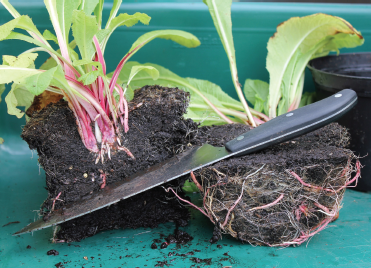
I woke up and went outside to harvest. I spent the morning digging up roots, rinsing them clean, putting them into containers to store. Then I checked the news.
Hasidic Jews in New York attacked with a machete inside their Rabbi’s home on Chanukah. The ninth anti-Semitic attack in New York during this week. Visibly Jewish people bearing the violent brunt of the story told about all Jews: that we are the ultimate source of people’s suffering. And that by harming us, killing us, that suffering will be alleviated.
The roots of our society are rotting. It is time to dig them up.
The roots of racism and anti-Semitism have run deep through our society’s history and have grown violence for generations. The exploitation of Black and Brown people, since before our country’s founding. The story that says that Black people are subhuman, that Black labor is white people’s to commodify, that Black communities can be destroyed in an infinite number of ways if white people can benefit. Stories that pave the way for gentrification and expulsion. And the stories that say it’s the fault of the Jews, stories imported by white nationalists for generations that claim that Jews control the banks, control the government, and ultimately control people’s lives. We have breathed these stories in since before we were born. They have always been written and spread by white supremacists and white nationalists, but at some point they came to be understood as common knowledge and we have failed to belong to each other ever since.
All of these stories serve to divide and conquer. All of these stories are meant to keep power in the hands of those who hold it.
As Carin Mrotz writes, “Just as capitalism absolutely depends on racism in order to justify exploiting black and brown bodies for labor, it absolutely depends on anti-Semitism in order to scapegoat the Jews and obscure the wheels of its own violence. Poor people are told it’s the Jews who are to blame for their poverty and oppression. Oppressed people are driven apart and pitted against each other. That’s the whole point. It’s so, so painful—and as we see, violent—when it works the way it’s supposed to.”
Most Hasidic people in New York experiencing this violence are poor. They live at the same economic level as the communities around them. But this isn’t the story that gets told. Because if we enable our suffering to connect us to one another, then we constitute a threat.
We must constitute a threat.
This doesn’t mean returning things to the way they were under the Obama administration. This means digging up the rotten roots.
DOVE KENT, “Tearing Up Anti-Semitism by the Roots,” The Lilith Blog.
- No Comments
December 31, 2019 by admin
Can We Cut Off Antisemitism at its Roots?
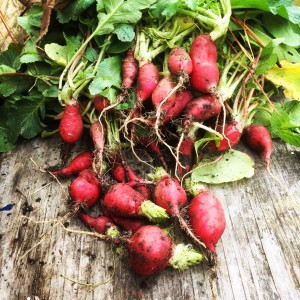 On the antisemitic attack in Monsey:
On the antisemitic attack in Monsey:
Last night I had a dream that it was finally time to harvest the root vegetables. In the dream, they had been left too long in the ground, and they were starting to rot.
I woke up, dressed, and went outside to harvest. I wasn’t too late. The first radish, round and bright and pink, allayed my fears. I spent the morning digging up the roots, rinsing them clean, putting them into containers to store. Then I checked the news.
Hasidic Jews in New York attacked with a machete inside their Rabbi’s home on Chanukah. The ninth antisemitic attack in New York during this week. Visibly Jewish people bearing the violent brunt of the story told about all Jews: that we are the ultimate source of people’s suffering. And that by harming us, killing us, that suffering will be alleviated.
- 2 Comments
January 24, 2019 by admin
Why Anti-Semitism on the Left Hurts Me More
Someone asked me incredulously if the anti-semitism on the left really upset me more/made me feel the need for a Jewish state more than the Pittsburgh. (And then went on to describe the evils of Israel.) Oh yes, yes, the anti-semitism on the left does hurt and scare me more. Not that it’s worse. Just in terms of how I feel able to function in the world, it is much more impactful.
Trump-types’ hatred of me means there are people I do not identify with who don’t want me. But when the people who are my refuge, who I want to make a home with me (meaning a home in the world), who I long to celebrate for and with when they succeed–when these people see me, Israel, Jews (except their approved Jews, maybe, relishing this potential division from each other?) as uniquely evil and worthy of being pointed out as so, Haman-style—whether we are relevant or not to the issue at hand—I fear that I have no home in the world at large.
- 9 Comments
January 15, 2019 by Amy Stone
The Women’s March 2019: Muslim and Jewish Women Navigate the Waters
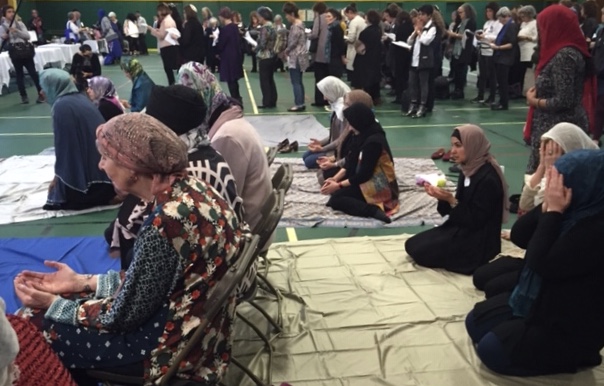
Side by side in prayer, Muslim women (front), Jewish women (back) at Sisterhood of Salaam Shalom national conference.
Photo: Amy Stone
The Sisterhood of Salaam Shalom is a North American grassroots organization bringing Muslim and Jewish women together to get to know one other and together stand up to hatred. Yet despite its mission, the organization is not getting involved with the competing Women’s Marches being held in New York (two of dozens of marches around the country) this Saturday, January 19.
Not shying away from inflammatory issues, back in November, SOSS members at their 5th annual national conference got the challenge from co-founder and sister-in-chief Sheryl Olitzky, just after the murder of 11 Jews at the Tree of Life Synagogue in Pittsburgh: “America is on fire. Are you ready to be the firefighters?”
In the all-is-right-in-America autumn splendor of a college campus, some 600 women, some in hijab, a few in yarmulkas, had come together at the conference of the only American organization of Jewish and Muslim women and teenage girls. Galvanized by Trump’s incendiary pandering to racism, SOSS membership has more than tripled since the 2016 election. After the Pittsburgh killings, SOSS provided some comfort. Black paper strips for all were the conference equivalent of the cut black ribbon worn by Jewish mourners. We mourned the 11 Jews murdered at Tree of Life synagogue and the two African Americans gunned down six days later at a Kentucky supermarket when the white killer couldn’t get into a black church.
Edina Lekovic, a founder of NewGround: A Muslim-Jewish Partnership for Change, based in L.A., told the assembled groups, “I’ve been here too many times – Muslim, Latino, LGBTQ, African American. Too many times, we’ve come together to grieve.” Quoting the Quran: “Surely with hardship comes ease.” But then this woman with the elaborately braided head covering put a new spin on it: “I used to think it meant, ‘First hardship, then ease.’” But then the subtler understanding: “It’s not sequential. Surely with the hardship, within the hardship is the ease.” Her message: “It’s time to go deeper. Neither fight nor flight but reconciliation and justice.”
What does that mean for Lekovic as an American Muslim? “Not just by marching in the streets but sharing the hard stuff, sitting together in living rooms, going deeper.”
That’s a bedrock principle of the Sisterhood of Salaam Shalom. For instance, the group has a directive: don’t try to solve the Israel-Palestine conflict till you’ve known each other for at least a year and built friendships that, hopefully, will humanize seemingly intractable political positions.
And now, a new test case: the dangers for Muslim and Jewish women of taking positions on the competing women’s marches with all their attendant drama.
At least in New York City, there will be two simultaneous events:
1 ) Women’s March Alliance, with a march organized by the same group that did the first two New York City marches, is assembling at Central Park West and 72nd Street at 10 AM, stepping off after a rally at 11 AM. Their home page states: “We do not support any organization or person that is anti-Semitic, anti-gay, anti-woman, or does not support equal rights for every human. We welcome any and all people who want to raise women’s voices through education and activism.”
2) Women’s March Inc. NYC, an offshoot of the 2017 national march in D.C., will join with the New York Immigration Coalition for a rally at Foley Square, across from the federal courthouse, from 10 to 2 on Saturday. Their home page states: “The Women’s Unity Rally in NYC will highlight the leadership of Black women, immigrant women and women of color as part of the national #WomensWave, and in response to the Trump Administration’s continued assault on immigrant communities and communities of color.”
Reading about these dueling events, I feel I’ve just sustained a punch to the gut. I wonder: is a mass movement of women of all religious beliefs, colors, ages, sexuality and classes, standing up against our racist, misogynist administration, being threatened by corrosive politics? Why come to a city that already has a locally organized women’s march and start your own instead of working to bring more women of all colors and beliefs into the local march?
At least for this New York Jew, the locally organized march rallying at Columbus Circle then marching down Sixth Avenue is the one I’m going with. I’m gritting my teeth at the idea of women’s unity being threatened when we’re perilously close to losing our rights, including our rights to our own bodies. I don’t think boycotting the Women’s March or the competing rally is the answer. Judging by online comments, most women seem unaware of the competing marches or are frustrated and confused.
I’m making this choice in part because of the D.C. march’s problematic leadership that reportedly excluded Jews from the early organizing two years ago and still seems to wobble on whether it supports outspoken anti-Semite Louis Farrakhan. (As of January 14, the march’s leadership has expanded to include at least three Jewish women of color among the 23 women on the steering committee.)
My pre-Sisterhood self would have jumped in, criticizing the D.C. march leaders for excluding Jews from the original leadership then reportedly trying to move in on the local New York leadership.
But wait. I have decided to tread carefully. Jews and Muslims from our Sisterhood of Salaam Shalom Civil Rights Bus Trip are coming to New York City for the Women’s March and Martin Luther King Jr. Day. Some of my Muslim sisters may support the D.C. march, its local presence, and its leaders, including co-president Tamika Mallory and national march co-chair Linda Sarsour, an American Muslim of Palestinian descent. The D.C. leadership has publicly reaffirmed a welcoming stance towards Jews. Personally? I’m feeling different strokes for different folks.
And now, a new coalition of Jewish Women of Color is weighing in. The group, led by Yavilah McCoy, among others, is asking all Jewish women to march (wherever we are, including in the “official” Washington, D.C. march). We are being called to join as allies under the banner and hashtag #JWOCMarching, signifying that Jewish women of color are living their lives at the intersection of racism and anti-Semitism. McCoy and longtime feminist and social justice activist Shifra Bronznick, writing in the Forward, encouraged all Jewish women to join the official Women’s March to stand up for our rights.
Back to the Sisterhood of Salaam Shalom. Fortunately the organizer of our New York Sisterhood gathering is, literally, a rocket scientist. She’s laid out our personal options with precision: 1) Participate in the locally organized New York march. 2) Participate in the D.C.-linked New York rally. 3) Feel free not to participate in either.
Returning to Edina Lekovic’s “Neither fight nor flight,” all of us – Muslims and Jews – will be sitting down together after the march to talk about the tough issues we’ve restrained ourselves from struggling with online.
But wait – there’s more. Rev. Cathy Bristow, an interfaith minister whose mission is “relanguaging” the conversation around race and gender, came to my aid. Her advice: “Don’t say ‘competing marches’. The two marches are not competing. Women are not one concentric circle. There’s racism within that circle.” And then, her additional insight: “If there are two competing marches and you think there should be one, go with the other march.” In other words, lean in to your discomfort.
I am shaken out of my position. To my amazement, I think I’ll go to the Foley Square rally. And then, another breakthrough: I’ll go to both.
Wish all of us luck. Or maybe even pray for us.
Resources:
- Women’s March Inc. NYC- Action Network rally with NYC Immigration Coalition (DC-affiliated group)
- Women’s March Alliance route info (separate group)
- #JWOCMarching press release
- RSVP and information for Jewish Women marching in Washington, DC.
- 3 Comments
January 2, 2019 by Alice Sparberg Alexiou
Why Did the New York Times Run Alice Walker’s Unfiltered Antisemitism?
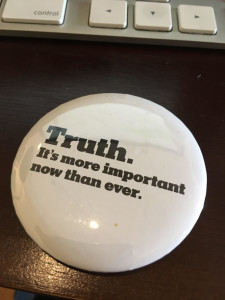 On December 13, 2018, the New York Times Book Review, in its weekly column “By the Book,” published a Q&A with Alice Walker. The author and activist best known for her novel “The Color Purple” told the Times that she keeps on her night table a copy of And the Truth Shall Set You Free by one David Icke. His book, Walker said, is “a curious person’s dream come true.” While Walker’s reference may not have meant anything to most Book Review readers, Twitter users began to buzz about her unusual choice. Tablet magazine’s Yair Rosenberg wrote a long, damning story: Icke, we were reminded, is a British conspiracy theorist who believes that the world is controlled by alien reptilian creatures and—you guessed it—Jews. To back up his age-old canard, Icke quotes from—yes, really–The Protocols of the Elders of Zion. The story immediately blazed through social media. Other news outlets began picking up the story, and Times readers bombarded the paper with angry comments.
On December 13, 2018, the New York Times Book Review, in its weekly column “By the Book,” published a Q&A with Alice Walker. The author and activist best known for her novel “The Color Purple” told the Times that she keeps on her night table a copy of And the Truth Shall Set You Free by one David Icke. His book, Walker said, is “a curious person’s dream come true.” While Walker’s reference may not have meant anything to most Book Review readers, Twitter users began to buzz about her unusual choice. Tablet magazine’s Yair Rosenberg wrote a long, damning story: Icke, we were reminded, is a British conspiracy theorist who believes that the world is controlled by alien reptilian creatures and—you guessed it—Jews. To back up his age-old canard, Icke quotes from—yes, really–The Protocols of the Elders of Zion. The story immediately blazed through social media. Other news outlets began picking up the story, and Times readers bombarded the paper with angry comments.
- 6 Comments
 Please wait...
Please wait...